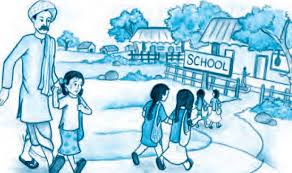Organic Theory of State | Political Theory | PSIR | UPSC
Organic Theory of State
Organic theory of State:
🔹The earliest concept on the State.
🔹Compares the State with an organism or Living body and the individuals with its organs.
Two implications :
1. The existence and worth of individuals depend on the existence of the State similar to the organs' relation with their organism.
2. different groups and classes in society are naturally fit to perform different function similar to the functions of various organs in an organism.
Key concept :
State as a natural Institution:
🔹State is a natural institution.
🔹Existence of man can't be imagined without the State.
🔹Ancients Greeks held, "State comes into existence for the sake of life and continues for the sake of good life".
🔹Aristotle : man is by nature a political animal.
🔹One who lives without the State is either a beast or god.
🔹State is prior to man.
Challenged by mechanistic theory in 17th century (scientific revolution) : Individuals as related atoms.
🔹Revival in 19th century.
🔹Edmund Burke:
1. like an organism, State could not survive it's dissection
2. It is grater and more complex than its parts
🔹Hegel (1770-1831) : State is a march of god on earth.
Biological school of Political theory (PT) :
1. revived the organic theory.
2. Development of political institutions (PI) echos the development of living organisms.
State as an Ethical Institution :
🔹State is an instrument of good life.
🔹It helps one achieve her potential and gain excellence.
🔹Differentiation of functions:
Aristotle :
1. natural difference in the capabilities of men.
2. Some men are marked for subjection and others to rule .
3. Slavery is natural (Some are bound to be masters and others slaves).
4. Slavery secures good life for both masters and slaves.
Biological school:
Three clear distinction b/w organic view and mechanistic view:
| 1. There is an intrinsic relationship between the parts and the whole. Unlike the part of a machine, the part of an organism has no existence when separated from that organism. Ex. A wheel is still a wheel whether it is fitted in a machine or is separated from it, while a hand loses its character as a hand as soon as it is separated from the body. |
| 2. In a machine, old parts can be replaced by the new parts, but it can not be done in an organism, yet the organism can transform itself gradually through natural growth. |
| 3. An organism is an end in itself while a machine is a means to an end which exists outside itself. |
Criticism:
1. Subordination of man to State:
🔸Man is overshadowed by State. Completely submerged in the State.
🔸Subjects men to the authority of State officials i.e. legislators, judges, ministers, bureaucrats etc.
2. Distorted view of freedom:
🔸No rights to man against the State.
🔸Ignores the distinction between State and society.
R. M. MacIver : if we do not distinguish between State and society, we are on a road to totalitarianism.
3. Denial of equality :
🔸Ordinary man can not have the seat of authority.
🔸Authority is monopolised by the chosen few.
🔸Justification for slavery, racial supremacy, imperialism etc.
4. There is no scientific evidence for any fundamental difference in men's capabilities.

.jpeg)

.jpeg)
.jpeg)

.jpeg)




Comments
Post a Comment
Your Views and Comments means a lot to us.